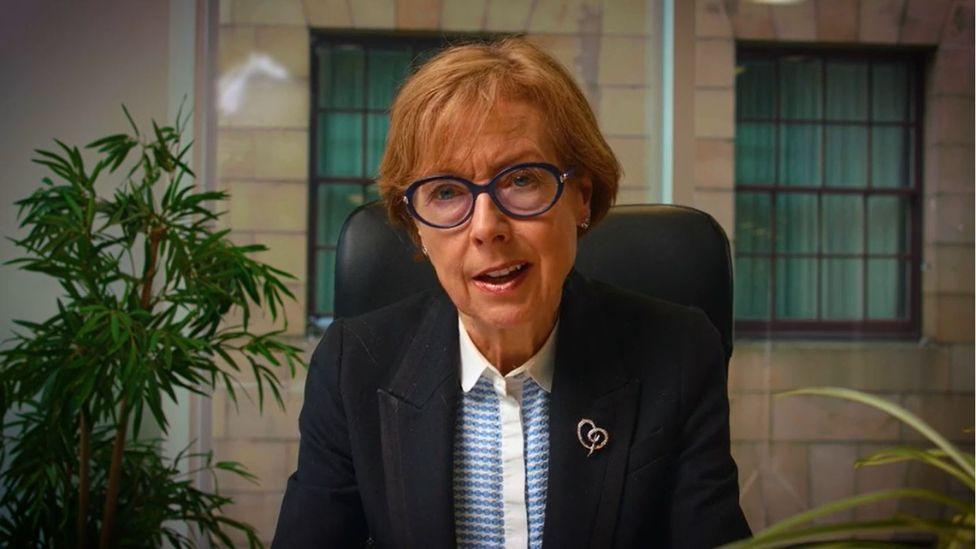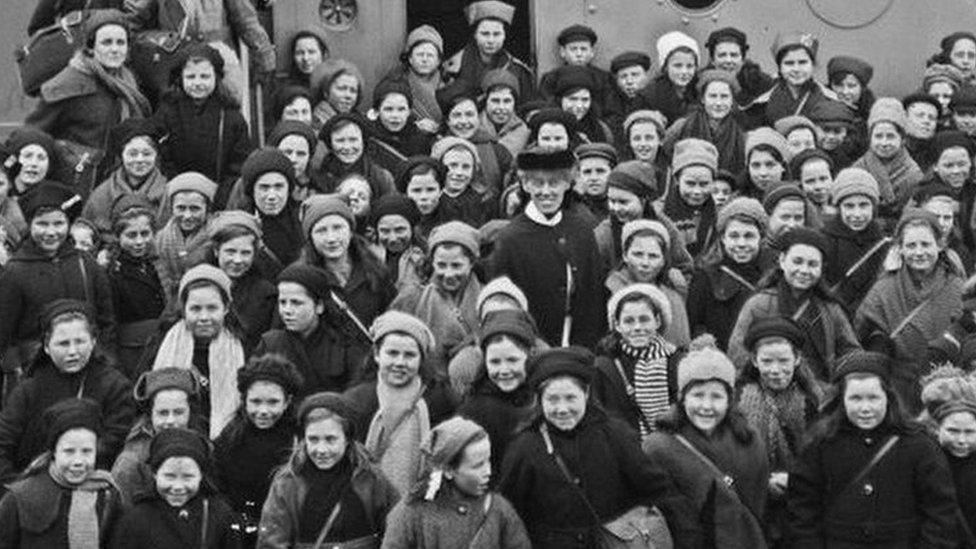Pupils abused by teachers at Loretto School, inquiry finds
- Published

Loretto School, in Musselburgh, East Lothian, has issued an unreserved apology to anyone who was abused in its care
The Scottish Child Abuse Inquiry has found that pupils suffered sexual, physical and emotional harm at Scotland's oldest boarding school.
Chair Lady Smith said pupils at Loretto School were abused by a small number of staff and other children.
One teacher was a prolific sexual predator but was allowed to resign with references after complaints were made against him in 1967.
The Musselburgh school apologised unreservedly to the victims of abuse.
It is one of several boarding schools investigated by the Scottish Child Abuse Inquiry (SCAI) and evidence was explored at case study hearings.
The inquiry found that among the staff who carried out abuse was the late Guy Ray-Hills – a French teacher at Loretto junior school the Nippers between 1951 and 1967.
Lady Smith described him as a "prolific sexual predator".
He groomed many children and established abusive sexual relationships with them, some of which were one-offs but others lasted for four years, she found.
On Wednesday, Loretto School reaffirmed its "unreserved apology" and deep regret for the hurt and pain suffered.
It said the well-being of pupils in its care remains its "highest priority".
Lady Smith made clear that the current leaders of the school inspire confidence that Loretto is now committed to child protection, and it has learnt and is keen to keep learning from its past mistakes.

Judge Lady Smith has led the inquiry since 2015
Many children, she said, had positive experiences at the school and went on to have rewarding adult lives.
However, she said: "Not all children had positive experiences and amongst those who did, there were children who also suffered abuse.
"Children who boarded at Loretto were exposed to risks of sexual, physical and emotional abuse.
"For many, those risks materialised, and I have no doubt that children were abused whilst in Loretto's care."
Lady Smith found the response by Loretto to the behaviour of Ray-Hills at the time was "woefully inadequate" and he was allowed to resign rather than being dismissed.
The school has previously apologised for giving a good job reference to Ray-Hills after he left.
She also found that another teacher groomed a final year pupil, and four other teachers were reported to have touched children inappropriately or made sexual comments that were offensive and upsetting to pupils.
The period covered in evidence ranged from 1948 to 2021 - which is beyond the terms of reference of the inquiry which covers up to December 2014.
However Lady Smith said it would have been wrong to curtail it.
Corporal punishment
Sexually abusive conduct by older children towards younger pupils was also normalised in the all-male environment of the houses at Loretto, Lady Smith said.
She found there was a lack of oversight and review of the use of corporal punishment by older boys over decades, which she described as a serious failing by the school.
Lady Smith found bullying, with associated physical abuse inflicted on younger boys by older boys, was a constant at Loretto throughout the 20th century.
Bullying cultures were allowed to prevail because of staff complacency and a lack of supervision by them, she said.
A Loretto spokesman said: "On behalf of the school, we reaffirm our unreserved apology and deep regret for the hurt and pain suffered.
"Our aim throughout has been to listen, learn and reflect and we will now continue to do so by considering the terms of Lady Smith's findings. As part of our ongoing work, Loretto remains open to hearing from, and continuing to learn from, survivors.
"We have worked hard to create an environment where every pupil, parent or member of staff can raise any concerns and know that they will be listened to and supported by appropriate action."
The inquiry, which was set up to raise public awareness of the abuse of children in care, is considering evidence up to 17 December 2014, and which is within the living memory of any person who suffered abuse.
Related topics
- Published21 March 2023
